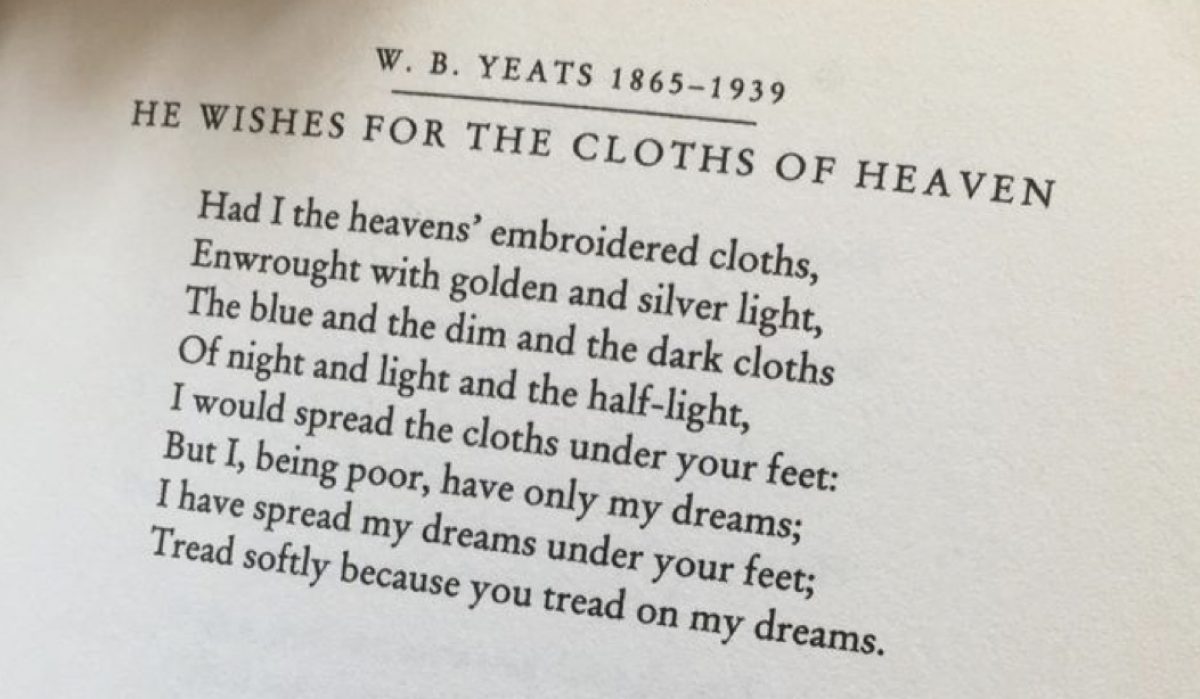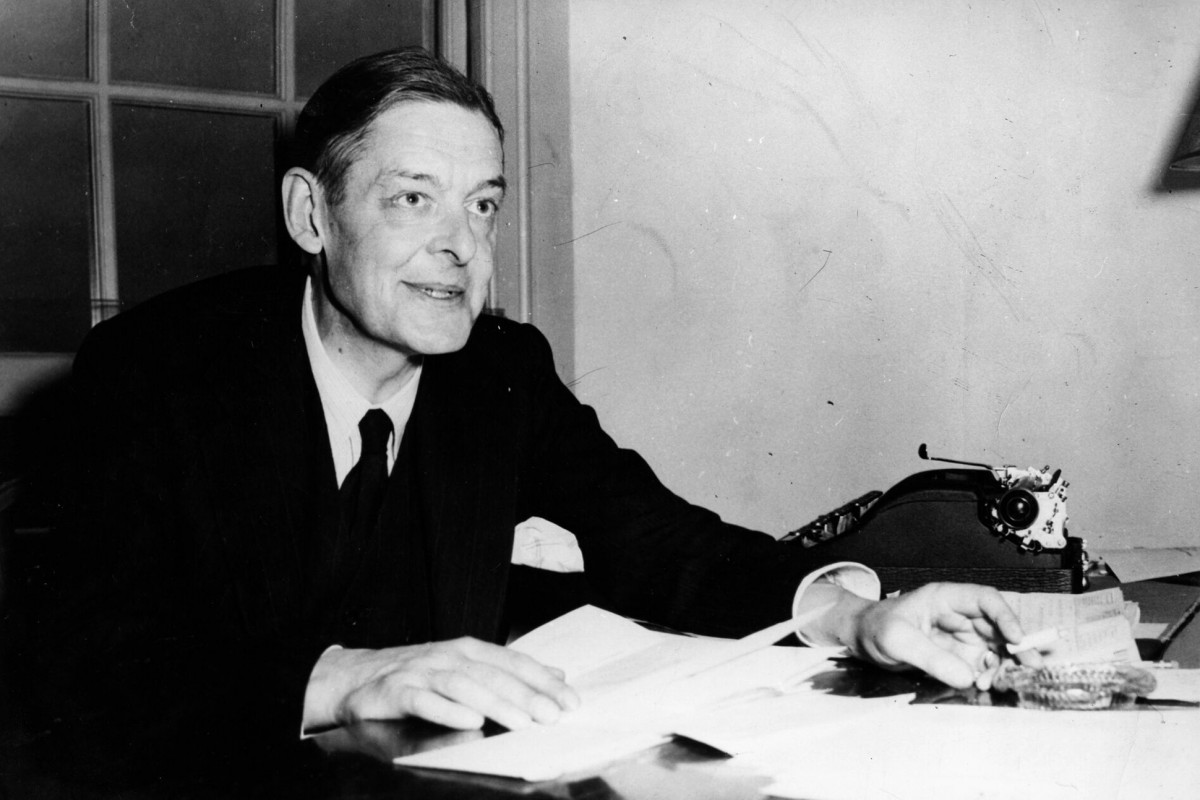In Freud’s Beyond the Pleasure Principle and Winnicott’s Playing and Reality, ideology regarding playing not only provides explanations for the interactions that occur within The Waste Land, but also for the way that we as readers interact with the text physically. The Waste Land itself is neither an internal nor external thing; it concentrates on the immediate, internal self and personal feeling, yet does this in an art form, in a way accessible to everyone. In reading Freud and Winnicott and by questioning the role of play in the text, we gain a more concrete understanding of how like a child’s development into reality, The Waste Land too contains a plethora of areas in which similar transitions are made.
To question the role of ‘play’ in The Waste Land we must first consider its position as a modernist text. If modernism is the bold new alternative to traditional art forms, it is inherently ‘playful’, as by nature it experiments with pre-existing styles and techniques. This is therefore true of The Waste Land, giving it a fundamental playful quality. Winnicott acknowledges play in terms of the arts in explaining how play “manifests itself, for instance, in the choice of words, in the inflections of the voice, and indeed in the sense of humour” (54). Clear comparisons can be made here to poetry, as according to Winnicott, it is the selection of words and use of language that constitutes play. In this example, it is not the subject of Eliot’s work that exhibits play, but the literal work itself. Eliot himself is playing by making conscious decisions in his creativity, and thus, engaging and contributing to play. Furthermore, Winnicott explicitly claims that art (as well as religion) is an example of transitional phenomena akin to child’s play, as are the cultural experiences (69) that we are exposed to, such as this text. In this case, it is again confirmed that The Waste Land is inherently a form of play due to its literary existence. Therefore, if “playing is the interaction with the transitional object” (18), according to Winnicott’s theoretical statement, then we too as readers engage with this ‘play’ in our submission to the poem.
Whilst The Waste Land is playful due to its existence as a modernist text, it does not totally disregard previous conventions, but in fact utilises them in a way that therefore confirms its polarity to them. This contributes to its transitional quality; consistently rejecting pre-existing norms, whilst relying and referring to them. Eliot draws on classical conventions, and relies on the density of cultural familiarity; in The Fire Sermon he refers to the mythological Tiresias, thus providing contextual symbols and imagery that aid our understanding of the passage. Whilst it is original, it is also deeply rooted in tradition and classical references. Eliot seems to draw upon the certainty and comfort of the past, much like how a child clings to the mother, but must learn to be without it in order to progress. Eliot directly confronts this tension in his essay Tradition and the Individual Talent, where he claims that “the past should be altered by the present as much as the present is directed by the past.” There is both a yearning to develop, to grow, and a resistance to detach from the known, an identical conflict to that of a child’s development through play.
By maintaining tangibility to the past, readers are undoubtedly provided with a sense of comfort and familiarity, and therefore, pleasure. Through considering Freud’s Beyond the Pleasure Principle, we can further examine not only a child’s aim to seek pleasure and avoid displeasure through play, but also the extent to which this describes human nature generally. Freud takes an economic approach to pleasure and play, and claims that this principle can be simultaneously contradicted by the reality principle (7). That is when we indirectly avoid or perhaps delay the obtaining of pleasure and in fact cause temporary displeasure, as a means for a more long-term satisfaction. The child is tempted to exert every direct longing immediately, but in growth, begins to understand that it may sometimes serve to be more worthwhile to demonstrate patience for a certain reward. This economic explanation of Freud’s helps us to analyse certain character traits in The Waste Land, specifically as he goes on to explain how it is harder to educate “sexual instincts” on the basis of the reality principle, as they are far more concerned with immediate, guaranteed pleasure. These theories illustrate the characterisation in The Fire Sermon skilfully. In the character of the Clerk, we are presented with a manifestation of the pleasure principle, sexually speaking. He seizes to obtain ‘pleasure’ by a means of “assaulting” and “exploring” (50), whilst the passive Typist seems to behave in a manner more conducive to the reality principle. This interpretation may be a little bold, but Eliot certainly presents us with two conflicting characters here. One seeks his pleasure on the basis of what is immediate and available, the other, makes her choices based on an economic balancing of options or almost convenience; convenience not being quite akin to pleasure, but certainly providing a safety or known comfort. Freud again helps us to gain understanding of the Typists decisions as he declares that “unpleasure for one system [can cause] simultaneously satisfaction for another” (21). In submitting herself to this situation the Typist may not be obtaining any pleasure, but she is certainly balancing incentives and disincentives, culminating in her choice to provide the Clerk with “no response” (50).
Consequently, in examining the significance of the Typist’s lack of resistance in The Fire Sermon, we could argue in line with Winnicott’s theories which would suggest that she has not quite acknowledged her literal reality. In regards to play, Winnicott claims that the process of accepting reality is never complete (18), in which case the Typists “indifference” (50) may be a mere guise by which she distances herself from reality. In the Typists lack of resistance, she is neither encouraging or discouraging the situation. This is a refusal of reality, and in this, she creates her own state of illusion, as a means of coping. If we note that Winnicott’s explanation of the transitional object provides a progression from the illusory to reality, he also equips us with the ability to observe transitional objects or areas that could instead transit one in a backwards direction, that is, from the real to the fantasy. Thanks to Winnicott’s theory, we can detect this in The Fire Sermon. The Typist adopts complete passivity towards her situation, and is instead described in terms of her domestic role to the extent to which she is even referred to as mere ‘typist’. This domestic domain provides a transitional disguise through which the character can avoid the real, and hide behind this role. Here, we do not witness a transition in the terms that Winnicott describes, but an almost anti-transition through which the Typist reverts from reality back to illusion.
In this avoidance of reality, there maintains a certain control. In play, or illusion, one acquires control and mastery of their circumstances, a mastery that is not guaranteed in reality. Freud describes this notion in regard to a child case study; “these efforts might be put down to an instinct for mastery that was acting independently of whether the memory was in itself pleasurable or not” (15). This idea of control is apparent in a literary sense in the poem as well. In A Game of Chess, the meter resembles iambic pentameter, yet as the section progresses line length and meter slowly start to disintegrate, and with the introducing of dialogue, the section soon lacks any sort of clear structure. Throughout this passage, Eliot both protects structure and technique as well as diminishes it. If Freud is emphasizing the importance of control or mastery in play, this poem both adopts this approach and rejects it. Freud’s theory helps to explain the effect of Eliot’s decision in that it confirms and understands reality, and yet goes on to depict utter fragmentation. In the territory of play, the poem’s disintegration therefore creates a sense of despair in its what would be deemed, ‘unhealthy’ behaviour, its lack of control.
This disintegration of the poem validates it as uncertain, or perhaps unreliable. Reliability is a concept that Winnicott address in his theories (64). Consequently, what does this tell us of The Waste Land, when stylistically and canonically, it is arguably completely unreliable? Can we trust The Waste Land? Like A Game of Chess, The Fire Sermon is similarly chaotic in style; it exhibits long stanzas that lack obvious structure along with unclear, enjambed sentences. And yet, there is pattern in its areas of alternating rhyme and iambic pentameter. Eliot employs the tools and skills required for intricate, patterned poetry, and yet simultaneously abolishes them, ridding the poem of any trust or reliability. Winnicott clearly describes how necessary these qualities are for successful play, possibly implying that The Waste Land is an example of unsuccessful play.
Winnicott persuades us of the importance of the reliability of a ‘transitional object’ in a child’s development through play. He emphasizes that “boys to some extent tend to go over to use hard objects, whereas girls tend to proceed right ahead to the acquisition of family” (6). This idea of female attachement and reliance on the institution of family is avidly clear in A Game of Chess. The emphasis on woman as homemaker is rife, and the family / marriage system seems to serve as a consistent priority throughout the section. It is something that the female characters both seem to fear and yet obey, a certainty and security that determines their whole livelihoods. Whilst this is not necessarily a transition of sorts, it is certainly a fixated pattern, a reliance, a “first possession” (2), in Winnicott’s terms. In light of this, the title of A Game of Chess is appropriate to its subject, that is the ‘play’ that occurs in human interaction.
Winnicott goes on to describe how “the [transitional] object is affectionately cuddled as well excitedly loved and mutilated” (7). This is an interesting and contradictory description; this object of such importance is both adored and hurt by the individual. In A Game of Chess, the female protagonist seems to be deeply anxious and pressured regarding her looks upon the prospect of her husband’s return, “you ought to be ashamed… to look so antique” (46), and yet the women are also heavily reliant on their husbands. This weight placed by the women onto the familial dynamic is extreme, they are both reliant and repellent. These parallels help us to identify how sex and reproduction are not depicted as something conducive or sacred, but as stale, problematic. This conflict regarding reproduction is confirmed in Eliot’s dialogue; “what you get married for if you don’t want children?” (46). If family is to this character what a transitional object is to the child, surely it is to be embraced, and yet there are clear tensions regarding the subject in the extract. Here arise issues regarding the self, issues that can be likened to those in child’s play, as the boundary between the internal and the external blur. Similarly, the implied abortion in the passage is not a private situation but is the subject of dialogue, it is very much public. In this way, the limits of the self are questioned, just as they are within a child as they play.
Winnicott states “The precariousness of play belongs to the fact that it is always on the theoretical line between the subjective and that which is objectively perceived” (68). This informs us that there is some distance, some mobility between Eliot’s writing and the individual interpretation of the reader. This line that differentiates the two, is where play resides. In this way, the idea of The Waste Land as a sort of bridge or transition is reinforced. What this leads us to ask is what, or perhaps where is ‘The Waste Land’? Close examination of Freud and Winnicott’s works regarding play helps us to accept that there is a struggle between leaving behind and embracing the unknown, a struggle between the internal, subjective domain and the external, arguably more real world. Eliot examines these struggles through both his literary techniques and his characterisation, as he illustrates human nature’s movement between both the internal and external realms. The gap in between these places is where ‘play’ resides, an empty place, but a place of great potential; a waste land.
Word Count
2092
References
- Eliot, T.S. Selected Poems. 3rd ed. London: Faber and Faber, 2009. Print.
- Eliot, T.S. Selected Essays 1917-1932. U.S.A: Harcourt, Brace & Co., 1932. Print.Freud,
- Beyond the Pleasure Principle. New York: W. W. Norton & Co, 1989. Print.
- Winnicott, D. W. Playing and Reality. New York: Routledge, 2005. Print.


